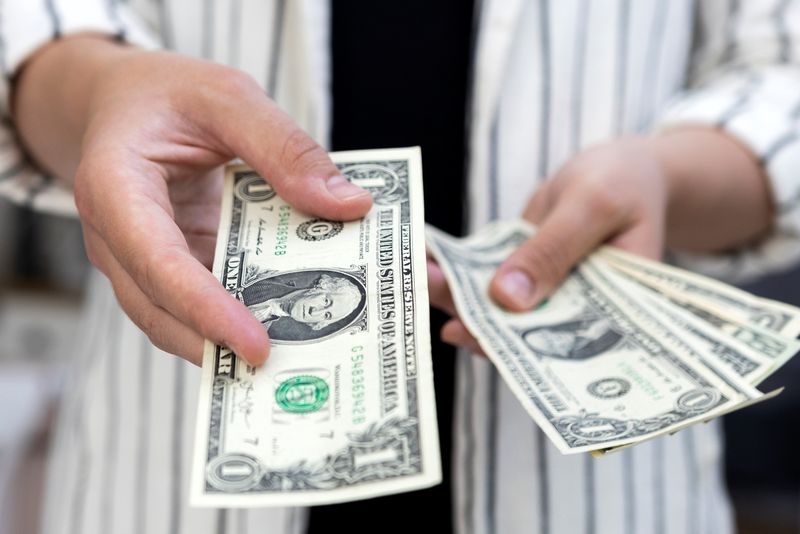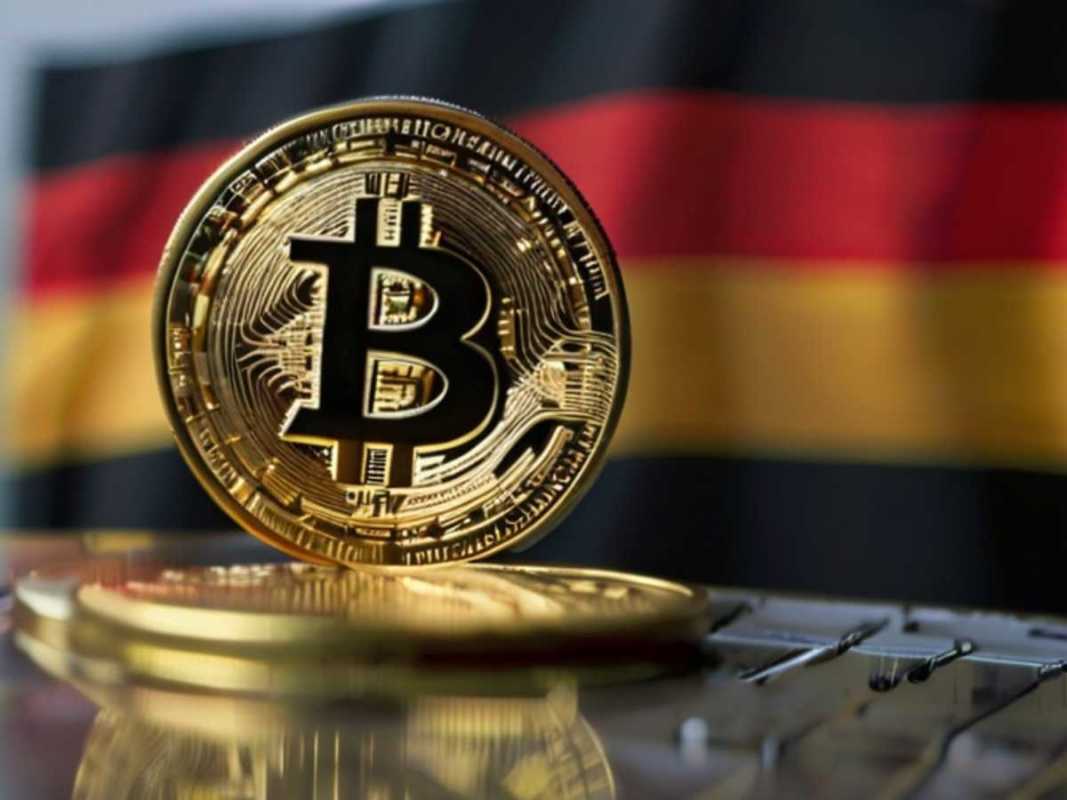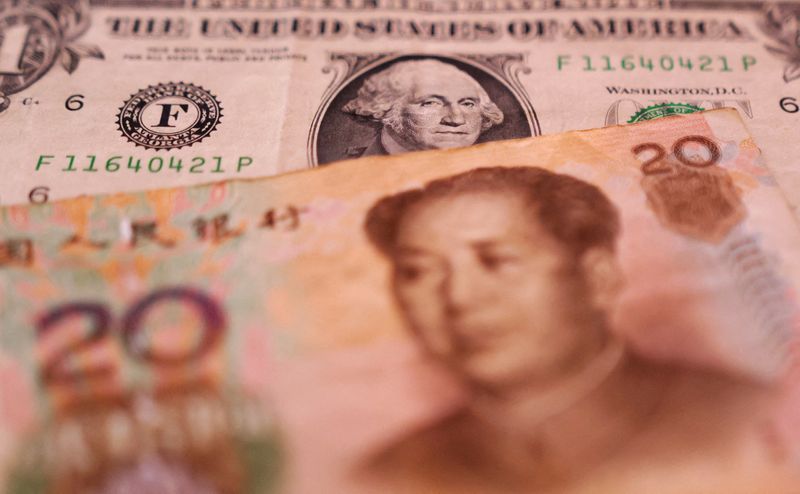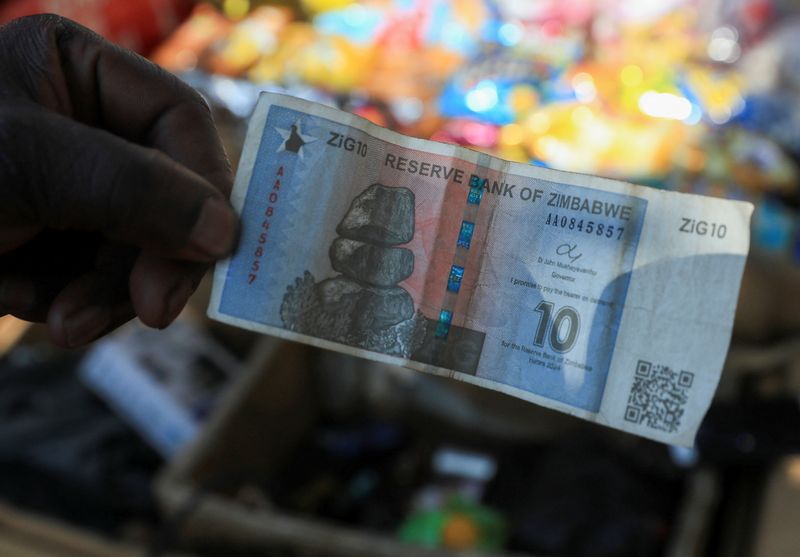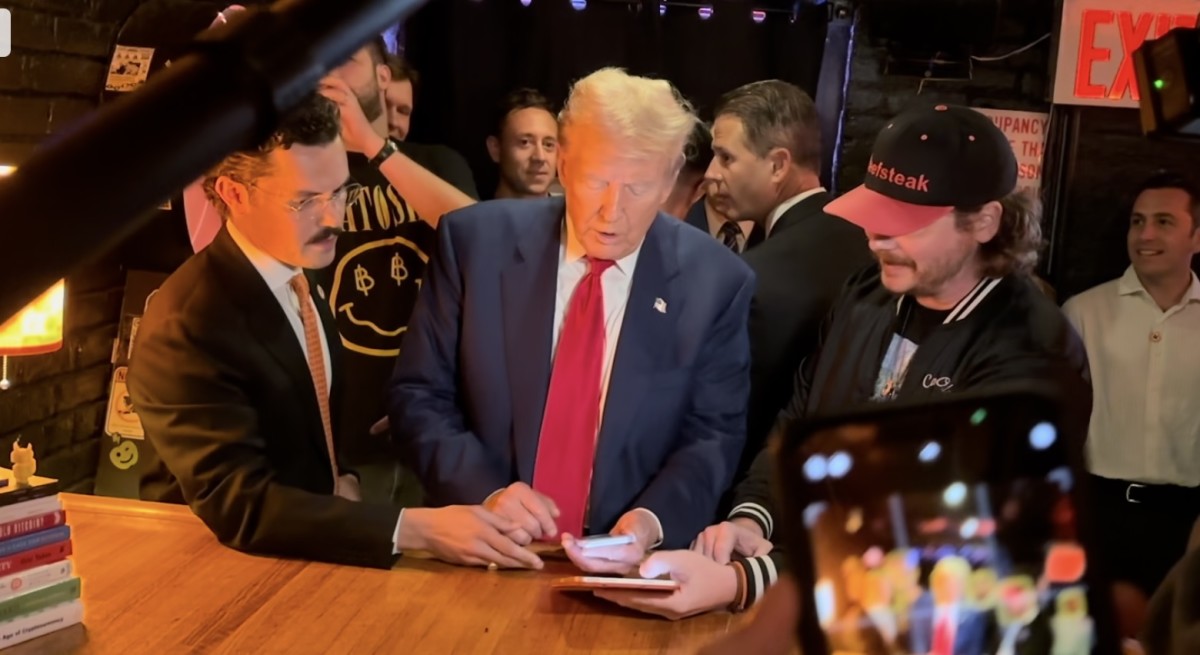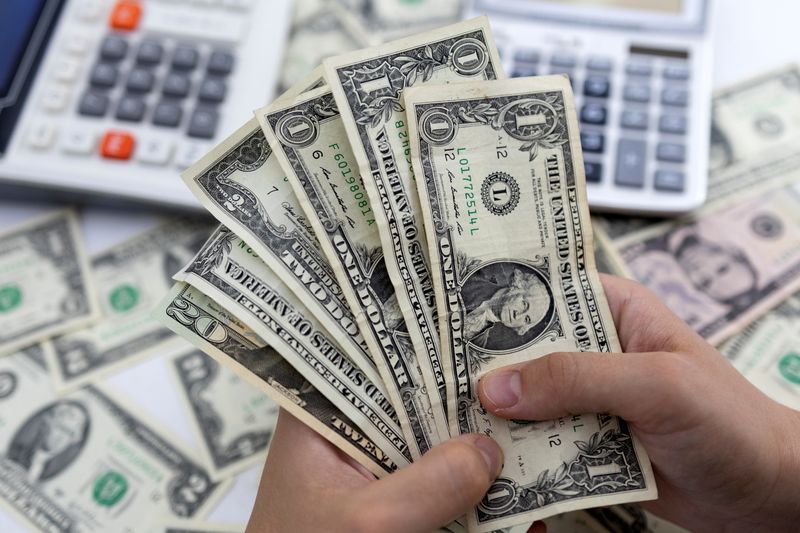Month: September 2024
Dollar slips in choppy trading as traders grapple with Fed’s giant rate cut
Post Content
Celebrating 10 Years of the Hardware Wallet Revolution
As we celebrate the 10th anniversary of the first hardware wallet, it’s remarkable to see how far Bitcoin security has come. From the early days of precarious self-custody methods to the game-changing creation of the Trezor Model One, this revolution has transformed the way we protect our digital assets. With a decade of this experience behind us, it’s worth revisiting the challenges of early Bitcoin self-custody, the pivotal impact of the first hardware wallet, the essential role of self-custody in today’s Bitcoin landscape, and the innovative advancements continuing to shape the future of crypto security.
The Origin Story
It all began in 2011 when Marek “Slush” Palatinus logged onto his mining pool server and discovered 3,000 BTC were missing. A mining pool is a collective of miners who combine their computational resources to increase their chances of successfully mining Bitcoin blocks. Slushpool, now known as Braiins Pool, was the pioneering mining pool in the Bitcoin community, established in 2010.
This incident highlighted a significant issue: even tech-savvy Bitcoin enthusiasts could fall victim to online attacks. At that time, securing and managing Bitcoin was a daunting task, involving storing private keys on a computer. However, securing information on a computer is difficult; these complex machines are vulnerable to many threats that allow thieves to steal private keys controlling Bitcoin. The hack that cost Palatinus 3,000 BTC was a reminder of these early vulnerabilities.
Recognizing a pressing need for a simple, stand-alone device that could securely store Bitcoin, Slush, along with Pavol “Stick” Rusnák, embarked on creating the world’s first hardware wallet. Their vision was to develop an offline computer specifically designed to store Bitcoin securely and make it accessible to non-technical users. The concept was straightforward yet revolutionary: a small, single-purpose device that would keep private keys in an isolated environment, protected from online threats.
Before Hardware Wallets
Before hardware wallets became widely available, users had to rely on software wallets installed on computers or smartphones, which exposed them to a range of security threats. Malware infections and other attacks were common. Paper wallets were considered more secure but still required a computer to create the wallet. More secure methods, such as using air-gapped computers for cold storage, required significant technical expertise, and even these methods lacked an adequate level of security for larger amounts of Bitcoin.
The usability of early Bitcoin wallets was also a significant issue, with clunky interfaces and complicated backup processes. Many users failed to back up their wallets properly, leading to permanent loss of funds if a device was lost or damaged. Users were frequently unaware of best practices for backups, and the lack of standardized backup methods further increased the risk. A major improvement in backup standardization came with the introduction of Hierarchical Deterministic (HD) Wallets with BIP32 in 2012, allowing for easier and more reliable backups. Despite these advancements, there was still a lack of easy and user-friendly options for newcomers. In short, the period before Hardware Wallets was marked by significant security and usability challenges, making Bitcoin self-custody a complex and risky endeavor.
The First Hardware Wallet
In the years leading up to 2014, various attempts were made to develop simple, single-purpose devices for cryptocurrency storage. However, these efforts failed to gain traction or meet the necessary security standards. Recognizing the need for a robust solution, Slush and Stick monitored the landscape for two years before they finally decided to create their own hardware wallet.
In 2014, they released the Trezor Model One. This device was the first ever hardware wallet, combining user-friendly design, truly random private key generation, and the ability to easily sign transactions completely offline. In addition, it implemented the BIP39 standard, a new standard created by the Trezor creators to back up wallets using a list of 24 words representing the private keys, a standard adopted by many wallets and familiar to anyone who has put their Bitcoin in self-custody.
When the user first connects the device, it guides them through the setup process to create a new wallet. The device generates a recovery seed, which represents a human-readable version of the wallet’s master private key and enables wallet recovery in case of device malfunction. The user is prompted to write down this list of words on a piece of paper, ensuring the wallet is backed up, and the private keys remain offline.
This onboarding process ensures that users create a backup and keep it secure. The user-friendly design offers advanced security, making hardware wallets accessible to both beginners and experienced users.
The Open Source Advantage
A key aspect of Bitcoin is its commitment to open-source principles, and that’s why the founders of Trezor adhered to the same principles when developing the Trezor Model One. This approach has been adopted by most manufacturers in the industry. Open-source software allows the community to audit and verify a system’s integrity. This transparency ensures that potential vulnerabilities can be identified and addressed promptly and allows improvement by the global community. The first hardware wallet was open source, and many in the industry have embraced this approach for transparency, emphasizing the Bitcoin ethos, “Don’t trust; verify.”
The Importance of Self-Custody
Throughout Bitcoin’s life, we have seen many crypto exchanges and custodians collapse or suffer severe security breaches, showing the importance of holding your private keys. The mantra “not your keys, not your coins” emphasizes that relying on third-party institutions means trusting someone else with your assets, which can lead to big problems if the exchange gets hacked, mismanaged, or faces legal issues.
The Mt. Gox incident in 2014, one of the earliest and most notable exchange collapses, saw the loss of 850,000 Bitcoins, valued at hundreds of millions of dollars at the time. This catastrophic failure was due to both hacking and mismanagement, leaving users unable to recover their funds. Bitfinex also suffered a significant hack in 2016, resulting in the theft of nearly 120,000 Bitcoins. QuadrigaCX in 2019 saw users losing access to their funds after the sudden death of its founder, who was the only one with the keys to the exchange’s wallets. Cryptopia faced a debilitating hack in 2019, and Binance, the largest cryptocurrency exchange by volume, has also experienced breaches and faces increasing regulatory scrutiny. More recently, the FTX collapse in 2022 further reinforced the dangers of entrusting assets to centralized entities. Overall, mismanagement and fraudulent activities led to the loss of billions, impacting countless users and shaking confidence in centralized exchanges.
By using hardware wallets, individuals can achieve true financial independence, keeping their digital assets safe from the vulnerabilities of trusted custodians.
The Evolving Landscape of Hardware Wallets
Over the past decade, the hardware wallet industry has greatly expanded, with many companies offering a variety of products and features to meet different needs. User interfaces now range from simple button-based navigation to touchscreens and full keyboards. Many devices now support multiple cryptocurrencies, while some focus exclusively on Bitcoin. This range of devices caters to both beginners and advanced users, ensuring everyone can find a suitable option.
Another advancement has been the inclusion of secure elements—specialized chips designed to protect devices from physical attacks. However, all secure elements currently available on the market are closed-source, which raises transparency concerns. To address this issue, companies like Tropic Square are actively working on developing open-source secure elements to enhance trust and security.
Other significant advancements in the industry aim to enhance the security and robustness of wallet backups. Techniques such as Shamir’s Secret Sharing, Multisignature Wallets, and SeedXOR allow users to remove single points of failure, making it significantly more difficult for thieves to compromise the wallet.
Looking ahead, we can expect more improvements in hardware wallet security and usability. One notable development is the wider implementation of a new enhanced standard, SLIP39, which uses Shamir’s Secret Sharing. This method is becoming preferred over the traditional BIP39 standard due to its enhanced security and user-friendliness. With SLIP39, users start with a single list of words to back up their wallet and can later upgrade to a “sharded” backup with multiple shares. This approach provides a flexible and highly secure solution, making advanced security measures more accessible and practical for a wider range of users.
Looking Forward to the Next Decade
As we celebrate the first Hardware Wallet, it’s clear that this revolution has fundamentally transformed cryptocurrency security. From humble beginnings as a hobby project to becoming a trusted name in the industry, Trezor has pioneered innovations that have empowered countless individuals to take control of their financial future. The journey from the first prototypes to the sophisticated devices that we now use today is a testament to the vision and dedication of the Trezor team.
With the continuous evolution of Hardware Wallet functionality and a commitment to security and transparency, the future looks promising. As we look forward to the next decade, the industry remains dedicated to securing and innovating Bitcoin security and usability, ensuring that self-custody becomes increasingly accessible and secure for all.
This is a guest post by Josef Tetek. Opinions expressed are entirely their own and do not necessarily reflect those of BTC Inc or Bitcoin Magazine.
Germany’s Commerzbank and DZ Bank To Offer Bitcoin and Crypto Trading
Germany’s two of the largest five banks, Commerzbank and DZ Bank, are launching Bitcoin and crypto trading services amid growing institutional demand.
JUST IN: 🇩🇪 $500 billion Commerzbank to offer #Bitcoin and crypto trading. pic.twitter.com/KrOCOx5N9P
— Bitcoin Magazine (@BitcoinMagazine) September 19, 2024
Commerzbank, the country’s second-biggest bank by number of branches, signed a deal with Deutsche Boerse’s subsidiary Crypto Finance to provide trading access for corporate clients. DZ Bank, the nation’s number two lender, is enabling its 700 cooperative banks to offer Bitcoin and crypto trading via a tie-up with the Boerse Stuttgart exchange.
The moves come just weeks after Zurich Cantonal Bank in Switzerland began offering retail Bitcoin and crypto services. Major banks worldwide are increasingly embracing Bitcoin and crypto following the successful launch of the first U.S. Bitcoin ETFs.
“Our offering in digital assets enables our corporate clients to seize the opportunities presented by Bitcoin and ether for the first time,” said a Commerzbank executive.
DZ Bank and Commerzbank represent over $1 trillion in combined assets under management. Their entry significantly expands mainstream access to Bitcoin in Europe’s largest economy. DZ Bank’s head of trading said professional investors are rapidly allocating to Bitcoin and crypto, making regulated services crucial for portfolio diversification and risk management.
The moves are a milestone for Bitcoin’s integration into European finance. With leading banks providing access, Bitcoin is now going more mainstream.
Bullish bets steady on Asian currencies as Fed easing bets soften dollar, Reuters poll shows
Post Content
Zimbabwe’s new currency faces headwinds five months on
Post Content
Dollar bounces after Fed-inspired losses; sterling gains ahead of BoE
Post Content
Asia FX muted as dollar rises past bumper rate cut; yen down before BOJ
Post Content
Donald Trump Makes Historic Bitcoin Payment At PubKey
Today, history was made as President Donald Trump became the first US president to make a Bitcoin payment.
WATCH: 🇺🇸 DONALD TRUMP MAKES FIRST #BITCOIN TRANSACTION AT NYC BAR pic.twitter.com/rAjae6agH1
— Bitcoin Magazine (@BitcoinMagazine) September 18, 2024
The former President showed up to PubKey, a Bitcoin-themed bar located in the heart of Greenwich Village, New York City, to purchase some cheeseburgers (on National Cheeseburger Day) at the establishment, which was packed with Bitcoin enthusiasts there to welcome him.
“I think it’s a great place,” Trump said to Bitcoin Magazine about PubKey, before urging the types of Bitcoin enthusiasts who frequent the bar to vote this November.
“Get out and vote, because if you vote, we cannot lose. We want to get everybody that agrees with you people — and there’s a lot of people — [to vote],” he added.
“They’ve been treating you very badly at the SEC, and we’re going to treat you very fairly.”
Regarding the payment, Trump said it was easy to make and that it went through “quickly and beautifully.”
One of the most historic transactions in #bitcoin history was just made.
President @realDonaldTrump buying burgers at @PubKey_NYC with @tpacchia.
Block height: 861871
You saw it here first. pic.twitter.com/moHUIKDxej
— PUBKEY (@PubKey_NYC) September 18, 2024
After making the transaction, Trump, escorted by one of the bar’s owners, Thomas Pacchia, introduced himself to all in attendance.
“This was one of the most important Bitcoin transactions of all time,” said Pacchia.
“President Trump came to PubKey to connect with the Bitcoin community — to show his support to the Bitcoin community,” he added.
“We are very excited he was here.”
Louisiana State Government Now Accepts Bitcoin Lightning As Payment
Louisiana State Treasurer, John Fleming, M.D. has announced that the state government will now accept Bitcoin, Bitcoin Lightning Network, and USD Coin, as a valid form of payment for state services. The first cryptocurrency payment was made to the Louisiana Department of Wildlife and Fisheries today.
Dr. Fleming, described this initiative as a crucial step in modernizing government operations, stating, “In today’s digital age, government systems must evolve and embrace new technologies. By introducing cryptocurrency as a payment option, we’re not just innovating; we’re providing our citizens with flexibility and freedom in interacting with state services.”
The Bitcoin payments will be converted into U.S. dollars by Bead Pay, a provider specializing in cryptocurrency conversion for government transactions. “The State of Louisiana will not handle cryptocurrency,” clarified the announcement. This system aims to ensure that the state is protected from the volatility commonly associated with digital currencies. The conversion process mirrors that of credit or debit card payments, minimizing risks while offering secure, efficient transactions.
Louisiana’s shift to accepting Bitcoin is a part of a broader effort to integrate new technologies into public services. “I have been proud to author several bills related to digital assets and to Chair the State Treasurer’s task force in 2022,” said Louisiana State Representative Mark Wright. “I’m excited to see Louisiana further expanding its payment options under Treasurer Fleming. I look forward to working with him and others so that Louisiana will continue to be a leader in accepting digital payments.”
Louisiana expects the new payment options to reduce fraud and enhance overall transaction security. Residents can now use their private Bitcoin wallets to pay for services, while the state continues to receive payments in U.S. dollars.
The Louisiana Department of Wildlife and Fisheries was the first state agency to adopt the new payment system, with more departments expected to follow. “Offering our sportsmen more ways to interact with our department allows for us to enhance our customer service,” stated Secretary Madison Sheahan of the Louisiana Department of Wildlife and Fisheries. “This is another step towards our goal of creating a modern and professional organization that better serves the sportsmen of the state.”
Dollar gains ground after Fed delivers bumper 50 basis point rate cut
Post Content
